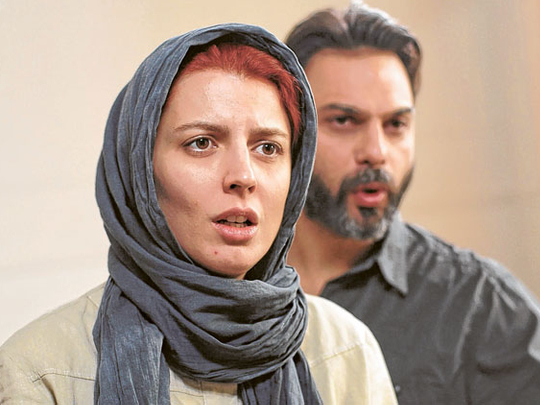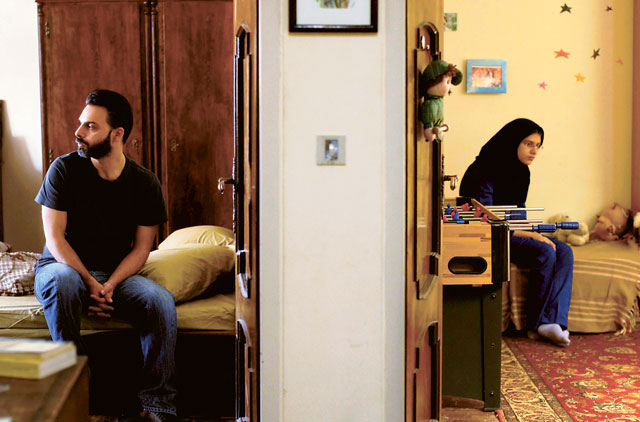
Tehran It has picked up award after award, including a Golden Globe last month for the best foreign language film and the Golden Bear at last year's Berlin film festival. And it has delighted ordinary Iranians grateful for some glory at a time when international tensions are rising.
But not everyone in Tehran is happy that Asghar Farhadi's hugely successful work, A Separation, is now a racing certainty to win an Oscar for the best foreign film at this month's Academy Awards.
The backlash was apparent on state-run television recently when Masoud Ferasati, an Iranian writer whose views are close to those of the Islamic regime, said: "The image of our society that A Separation depicts is the dirty picture westerners are wishing for."
Political motivations
Ferasati added that political motivations were behind the many awards for Iranian films in the past two decades, and said an Oscar for A Separation should not be welcomed by Iranians.
"On one hand, they [the US] impose sanctions against us, and on the other, they give awards to our film, to send us a positive signal. I think this [the film's success] is an illusion. This is not a good film."
Ferasati's remarks have been echoed by other influential supporters of the regime. Fars, a semi-official news agency, has even attacked Farhadi for shaking hands with women at award ceremonies.
Senior government officials appear unable to decide whether to associate themselves with the success of Iranian cinema or clamp down on its practitioners. Despite widespread censorship and harassment of independent film-makers in recent years, Iranian cinema has had numerous international hits in recent years, not least with Abbas Kiarostami, the director who won a Palme d'Or at Cannes for Taste of Cherry.
A Separation, Farhadi's fifth major film, follows the story of two Iranian families, one secular and middle class, the other religious and working class, whose fates become intertwined. A powerful portrait of social tensions in modern Iran, the film managed to obtain government backing, although permission for its production was briefly removed when Farhadi voiced support for Jafar Panahi, the Iranian film-maker imprisoned in 2010 after allegedly plotting to undermine the regime. After its nationwide release, A Separation attracted huge audiences for an independent film and even won government-sponsored awards.
Mild criticism
In comparison to his colleagues, the criticism of Farhadi is relatively mild, partly because of the subtlety of his work. Speaking to the Observer, Parviz Jahed, an Iranian film critic, said: "Farhadi's approach to politics is not direct but implicit and that's why A Separation, as a subtle film with ambiguity leaves space for various interpretations. Farhadi is a democrat in the way he treats the film's plot and characters and avoids judging anyone. That's why his critics among the regime accuse him of being passive."
But no one could say film-makers in Iran have it easy. Panahi's colleague Mohammad Rasoulof was also sentenced to six years in jail. Last year, Iranian actress Marzieh Vafamehr was sentenced to a year in jail and 90 lashes (later reduced) for appearing with her head uncovered in an Australian film critical of the regime, while popular actress Pegah Ahangarani has faced jail for her activism.
— Guardian News and Media Ltd.













